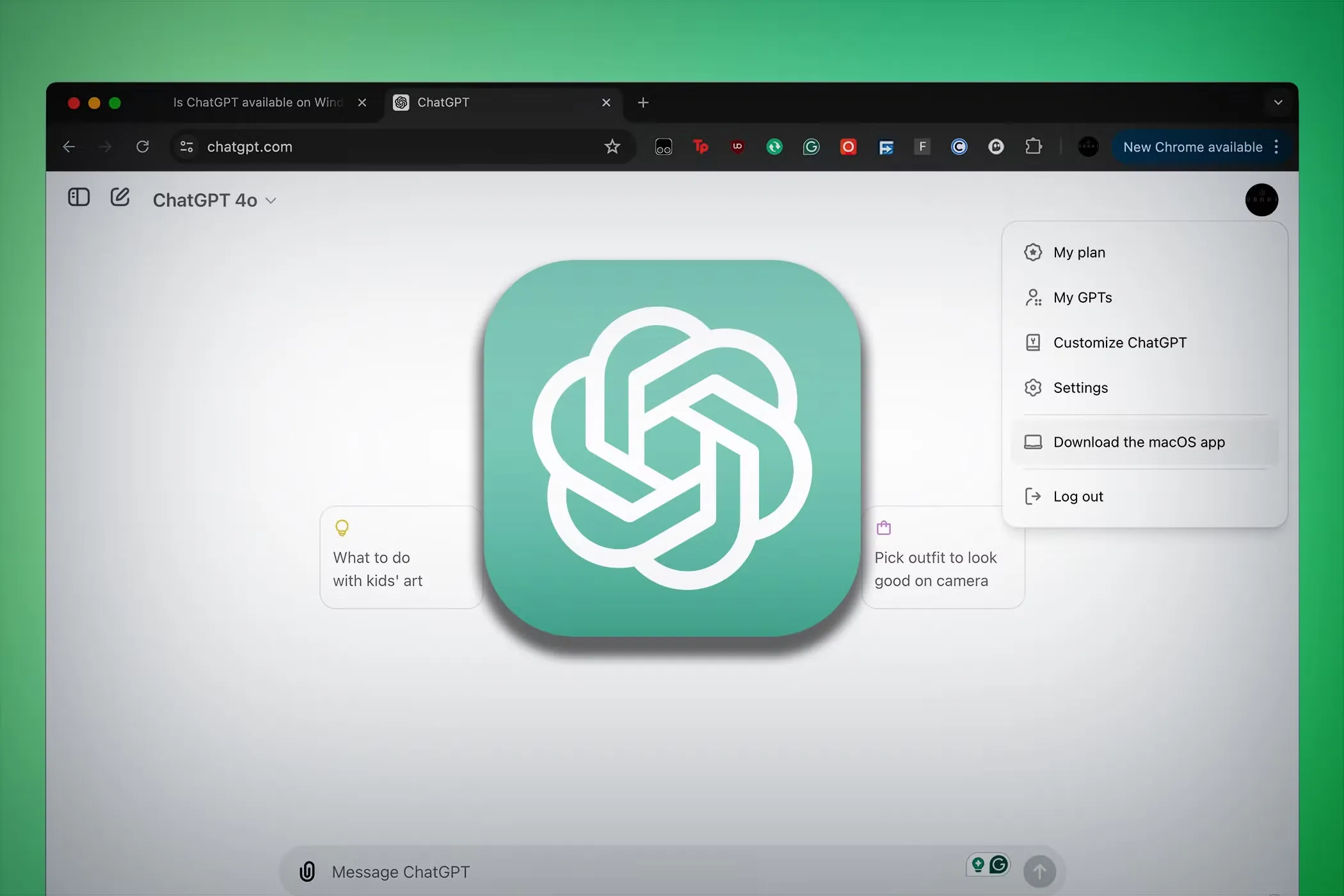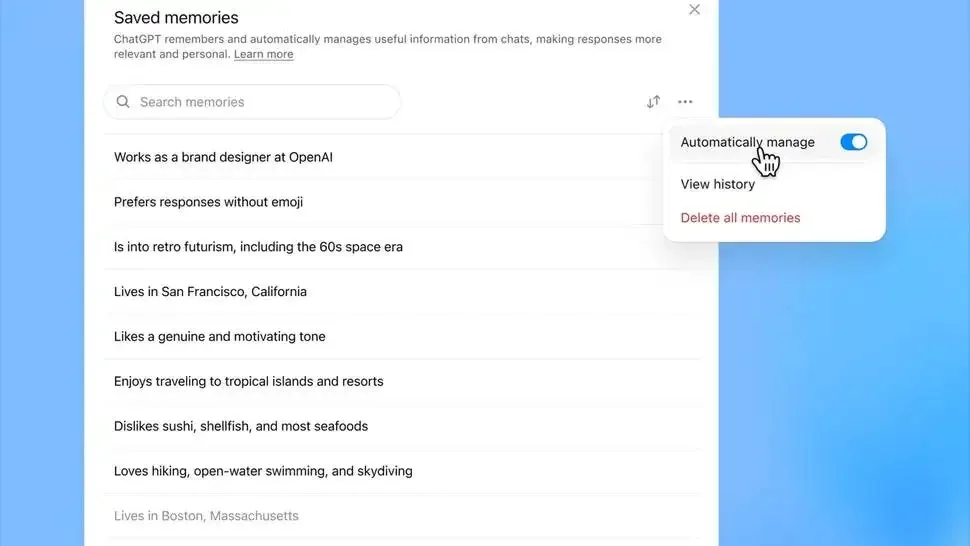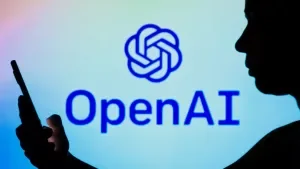ChatGPT’s memory feature was already a big deal. The AI could already remember past chats, making it feel more personal. It was able to know your name or coffee order.

Now OpenAI is going further. ChatGPT can not only remember but also decide what’s important and what to forget. That makes its memory feel a lot more natural and useful.
The End of “Memory Full”
The previous memory system had a big problem. Users either had to constantly review and manually delete old memories or risk the system becoming cluttered.
Managing and cleaning out these stored facts was time-consuming and tedious. Ignoring it could even lead to an annoying “memory full” message, limiting the chatbot’s effectiveness over time.
That’s what makes the new automatic memory system so interesting. It sounds simple, but it changes a lot. ChatGPT can now figure out on its own which details still matter and which ones can quietly fade away.
This keeps your chats helpful and up to date without you having to constantly manage anything yourself.

How Automatic Prioritization Works
The chatbot will determine what stays “top of mind” based on two factors. The first is how recently while the second is how frequently a topic has been mentioned. This is similar to how a human brain handles information, filtering what’s most important in the moment.
For instance, if a user has spent a week focused on complex work projects, that data will be instantly accessible. If they haven’t talked about an old hobby since last season, that information simply moves to a lower priority.
This system means users no longer have to manually prune their saved details. It transforms the memory from a static storage dump into a dynamic, shared document.
For the average user who just wants their preferences remembered, this switch to self-sorting means much less maintenance and a far better long-term experience.
User Control Remains Essential
Even with the new automatic system, you’re still in charge of what ChatGPT remembers. You can look through everything it’s saved and see exactly what it thinks matters most.
You have the power to manually promote a low-ranking memory, downgrade something that’s no longer relevant, or delete facts entirely. You can even revert memories to a previous version if the AI makes a mistake.
This update is a social one as much as it is a technical one. It shifts ChatGPT from being a reactive tool to one better designed for continuous, long-haul interaction.
For any serious AI assistant, a sophisticated memory system full of genuinely relevant data is fundamental. This automated management might not be flashy, but it’s a necessary step that significantly raises the ceiling on the chatbot’s overall usefulness.
Summary
- ChatGPT’s memory now chooses what to keep or forget automatically.
- The old “memory full” issue has been eliminated.
- Users no longer need to manually clear saved data.
- Memory priority depends on recency and frequency of topics.
- The system feels more natural and human-like.
- Information updates automatically without user effort.
- Users can still edit or delete stored memories anytime.
- The change improves personalization and long-term use.
- ChatGPT becomes a smarter, self-managing AI assistant.
Source from Gizchina
Disclaimer: The information set forth above is provided by gizchina.com independently of Alibaba.com. Alibaba.com makes no representation and warranties as to the quality and reliability of the seller and products. Alibaba.com expressly disclaims any liability for breaches pertaining to the copyright of content.




